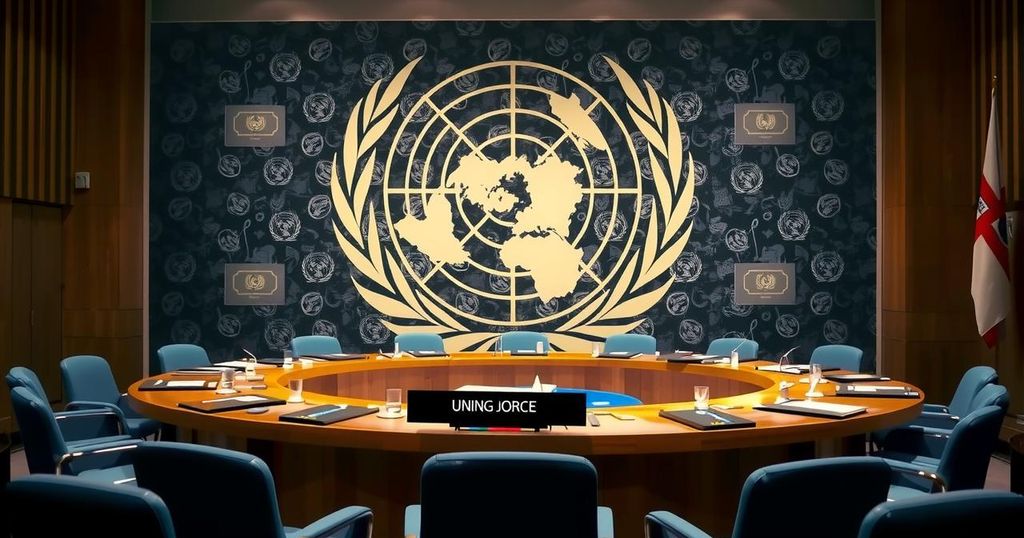On November 5, 2024, UN Assistant Secretary-General Martha Pobee briefed the Security Council on the detrimental impacts of the Sudan conflict on South Sudan and Abyei, emphasizing the urgent need for increased support for UNISFA. The war has exacerbated humanitarian crises, disrupted oil production, and strained local communities, drawing attention to the necessity of diplomatic resolutions and heightened assistance ahead of UNISFA’s mandate expiration.
On November 5, 2024, Ms. Martha Ama Akyaa Pobee, the Assistant Secretary-General for Africa at the United Nations, provided a critical briefing to the Security Council regarding the ongoing conflicts in Sudan and South Sudan. She emphasized the negative impact of the war in Sudan on the humanitarian, security, and economic conditions in both nations, particularly affecting the Abyei region. The UN is facing challenges in its mandate as the Security Council pushes for enhanced support for the United Nations Interim Security Force for Abyei (UNISFA) ahead of its expiration on November 14, 2024. Ms. Pobee reported a continued deterioration in South Sudan due to insecurity, which has inhibited oil production and aggravated financial difficulties. The humanitarian crisis has intensified, with numerous refugees fleeing Sudan into South Sudan, where they encounter severe living conditions. The situation in the Abyei region remains fragile amid increasing tensions between local communities and the proliferation of arms, exacerbated by incursions from armed groups. Furthermore, climate change has compounded these challenges, displacing thousands and disrupting essential services. The conflict between the Sudanese Armed Forces and the Rapid Support Forces has persisted for nineteen months, destabilizing the Horn of Africa and the Sahel region. Ms. Pobee underscored that without reconciliation in Sudan, progress towards implementing Resolution 2046 (2012) remains unattainable. UNISFA’s mission continues to focus on stabilizing the region, although no advancements have been made regarding negotiations on Abyei’s status or border issues. Concerns were raised regarding the presence of South Sudanese security forces infringing on the Agreements set forth in 2011, thus restricting UNISFA’s operational capabilities. The mission continues to engage with South Sudanese authorities to promote their withdrawal and facilitate the re-establishment of the Joint Political and Security Mechanism. A significant increase in local crime has been noted due to the influx of displaced persons, necessitating a call for enhanced support to UNISFA to ensure law enforcement and humanitarian assistance in Abyei.
The UN’s involvement in Sudan and South Sudan has been crucial for maintaining peace and security in a region plagued by conflict and humanitarian crises. The Abyei region, a contested area with historical ethnic tensions, remains a focal point for military and political unrest. Ongoing conflicts in Sudan severely affect its southern neighbor, South Sudan, complicating any political dialogue or resolution regarding territorial disputes and humanitarian needs. UNISFA was established to monitor and support peacekeeping efforts in Abyei, but its effectiveness has been hindered by recent hostilities and the increased movement of armed groups in the region.
In summary, the situation in Sudan and South Sudan continues to escalate, significantly impacting humanitarian efforts and security in the Abyei region. Ms. Pobee’s briefing to the Security Council highlights the urgent need for international support for UNISFA to fulfill its mandate and the importance of addressing the root causes of conflict to achieve lasting peace. The enforcement of previously established agreements is vital for stabilizing the area and ensuring the protection and well-being of displaced populations and local communities.
Original Source: www.america-times.com






